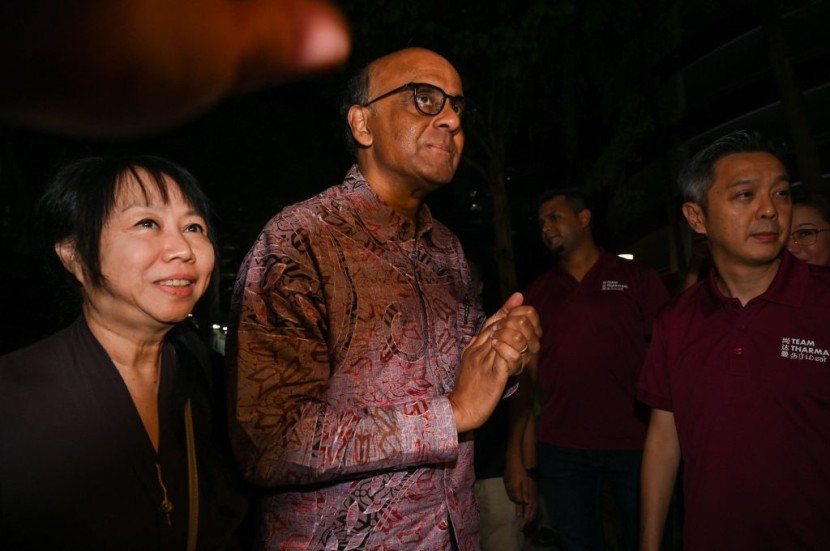
Tharman Shanmugaratnam was sworn in as the ninth President of Singapore Thursday (September 14) after winning a landslide victory in the island-nation's presidential election held earlier this month.
Tharman came on top of three candidates, garnering over 70% of the vote.
Meanwhile, his predecessor, Halimah Yacob, was given farewell honors in front of the Istana, the official residence of the president, prior to the swearing-in ceremony. She was the first female to ever assume the role.
In his inauguration speech, Tharman assured Singaporeans he would be "scrupulous and independent" in making judgments on the country's reserves.
"I will do my utmost to support initiatives that deepen the respect we accord to our fellow citizens, of all backgrounds and in every walk of life - the respect for all that is at the heart of our solidarity as Singaporeans," he said.
He also promised to work with the government under Prime Minister Lee Hsien Loong, community groups, voluntary organizations, and the entire nation to strengthen Singapore's multiracialism and nurture a more inclusive society, with the "strong mandate" voters have given him.
Meanwhile, Lee said Singaporeans have chosen a candidate who was "eminently qualified" for the presidency.
Read Also: More HNGN News about Singapore
Who is Tharman Shanmugaratnam?
Tharman was born in 1957 and obtained his education at the London School of Economics, the University of Cambridge, and Harvard University.
He was married to Jane Ittogi, a Singaporean lawyer of mixed Chinese-Japanese ancestry three years his senior, and they have four children together.
Tharman had long been a member of the People's Action Party (PAP) when he was a member of the Singaporean Parliament. He was a former deputy prime minister under Lee and also held several cabinet portfolios during his time in office.
He resigned both his seat in Parliament and from the party on July 7 this year to contest in the election as an independent candidate, as required by Singaporean law.
The role of Singapore's president is merely ceremonial with additional custodial powers over the country's past reserves, as commander-in-chief of the island-republic's armed forces, and as the ultimate guarantor of the country's public service system.
The person elected to the role is non-partisan, meaning he or she is supposed to be above any political squabbling. The president is also a symbol and unifier of the diverse and multicultural city-state, Mediacorp reported.
© 2025 HNGN, All rights reserved. Do not reproduce without permission.








